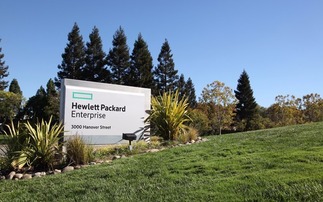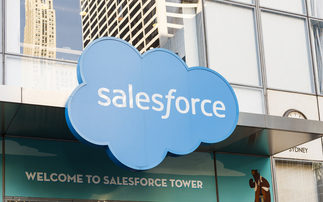The figures speak for themselves, the channel can no longer afford to ignore cloud computing. According to IDC, cloud IT infrastructure spending will grow at a compound annual growth rate (CAGR) of 15.6% and reach $54.6bn by 2019, accounting for nearly half (46.5%) of total spending on IT infrastructure. Anyone who ignores a trend like that does so at their peril.
"It's essential for channel partners to address the importance of cloud computing," says Jan Lawford, EMEA channel director at VCE, EMC's converged platforms division. "As organisations embrace the cloud as a mechanism to deliver IT resources, going beyond merely cloud-based computing to provide higher-level services such as databases and applications, channel partners must ensure they are seizing the opportunities on offer."
What does that involve? According to Lawford, partners need to educate themselves on different cloud solutions, whether public, private or hybrid cloud, and understand the different use cases so they can advise their customers. She adds that it is "absolutely critical partners have a strategy and plan for how they are going to develop their organisation's structure, sales and service capabilities and focus to embrace this world of cloud".
Chris Ross, senior vice president international at Barracuda Networks agrees that channel partners must start to "plan and implement new sales models, think about how they can help customers prepare for a move to the cloud, work to deliver migration services and help customers operate in a cloud world".
To achieve this, they need to have the technical skills and competences and to "understand the sales drivers of a cloud-focused business. The good news is channel partners will always be relevant, even in this changing world and move to the cloud. The role of trusted advisor is not going away, and you can argue it does, in fact, become more critical".
Paul Timms, managing director at The Maindec Group, believes channel partners should focus first on helping clear up customer confusion surrounding cloud. "Many SMEs I talk with are still confused and cautious about the cloud," he observes. "It doesn't help that the term ‘cloud' is a pretty abstract concept and doesn't provide the clarity required by some looking for a tried and trusted solution. This is especially true if you are trying to persuade customers to place their crown jewels into a cloud."
He argues partners should adopt a "clear, no-nonsense approach" and bring cloud down to earth by defining it as "a highly resilient, brick built, data centre building, with compute resources, storage and networking, that's located remotely in the UK or Europe, and is delivered as a commodity service".
According to Timms, "making the cloud more tangible immediately makes organisations more comfortable. Talking about a more familiar, tried and tested data centre environment achieves this".
Customers need to accurately assess the suitability of cloud as an effective solution for their companies but as all organisations are different, "vendors need to ensure their cloud infrastructure fits their customers' individual needs," he says. "With cloud, there is not a ‘one size that fits all' solution."
The key to a successful outcome "is a real understanding of what to place in either an on-premise, or public cloud solution. For the majority of organisations, the best choice is a flexible, hybrid option of a private on-premise cloud solution for confidential, business-critical data, with an option to burst into the public cloud for less vital services".
Timms identifies a range of IT activities - data backup, storage, DR, IT infrastructure management and support - that are "perfectly suited to the hybrid cloud" because they have been successfully delivered for many years via cloud-type, third party services. "This allows business services to be aligned to IT infrastructures in the right context, with the right service levels and at the right cost."
Mark Conley, director of worldwide channels at SolidFire, agrees that channel partners "should focus on selecting and customising the right model for their customers versus a one-size-fits-all approach". At a storage level, for example, they should avoid the temptation of recommending more of what is already in situ. To deliver the operational benefits required to migrate customers to a next-generation data centre, "VARs and solution providers should determine what the customer actually needs to efficiently and cost-effectively deliver IT services".
Keep It Simple, Stupid
Peter Groucutt, managing director at Databarracks, warns that "selling cloud services is completely different to selling hardware or software licences, and prescriptive channel programmes don't work well". He urges partners to "avoid gimmick-y partner programmes...Partners shouldn't be made to jump through hoops to be able to do their job".
In terms of services the channel should be pushing, he points to Office 365 and says "what we're now seeing is the legacy software vendors switching their models from selling software to offering their software as a service. Microsoft is really flying since it began its push on Office 365. The other service we would recommend is disaster recovery. DRaaS is a great cloud service because it lowers cost and improves recovery times compared with traditional DR services. The market understands what it is and there is no reluctance to outsource that part of IT - which makes it an easy conversation to have".
Keith Bartlett, EMEA business development director for distribution and inside sales at ShoreTel, agrees that areas like storage and disaster recovery, which set the pace for cloud delivery, are viewed as easy to provide and support but virtualisation means that "all types of solutions can be sold by the channel to users". He lists CRM, HR, payments, financial and accounting, creative ‘as-a-service' applications, unified communications and contact centre solutions as possible candidates.
But Bartlett warns that despite the benefits being clear around the provision and consumption of IT services, the full flexibility of cloud services can be hard to deliver because "commercial terms normally come with termination clauses or minimum terms, thus negating the ease of flexing down when services are either not required or a lower demand exists". The channel needs to find ways of delivering solutions that can flex down services easily to drive the holistic adoption of as-a-Service, he adds.
But isn't there a fear that vendors will use the move to cloud to bypass partners and go direct to their customers? Dave Stanley, director at Aditinet, acknowledges that the cloud "has transformed our sector by removing the logistical benefits of the channel". But customers will "still need the relationship benefits the channel can bring, the advisory, forward-looking component that brings consultative value is how the channel stays relevant".
He believes the channel "needs to nurture the products that remove noise and distractions for customers. The value lies in recommending products that will free up time, cost savings and headspace for customers to focus on projects that are more lucrative".
Paul Millar, director of innovation at TeleWare, says that some vendors might believe it is possible to cut out the channel but "partners can provide the education/tools, specific packaging of products or services, and help customers make the move to the cloud or adopt a hybrid model, using their knowledge and experience of legacy and new cloud technologies".
He adds that partners should deploy their expertise "for customers unsure of where to go with cloud products and services, with the varied options available". The benefit for partners is that cloud services open up more diverse services they may not have been able to access before "and they can increase their reach into the existing customer base as well as new customers". At the same time, the customer can look "to a trusted channel partner to deliver many varied services, which brings things all under one contract, billing cycle and support structure".
Partners can also pursue more opportunities and close business faster, while delivering cloud services with fewer people. And cloud means they are less constrained by geography than they used to be.
Christopher Sharp, senior partner manager at Exact, agrees that selling cloud helps partners "to provide a complete business solution via integrated apps. This saves the customer valuable time searching for the right apps for its needs, and also allows the channel partner to sell multiple products in one go, increasing revenue". But they need to overcome the challenge of forming relationships with the right SaaS providers, understand what problems they solve and which ones integrate best with each other.
"The best way to navigate this challenge is to focus on specific verticals and get to know 5 to 10 relevant integrated cloud offerings," he remarks. The accountancy solution is usually the hub of an ecosystem, so it is important to form a close relationship with a book-keeping or accounts SaaS. For example, Exact has vertically focused solutions that include accounting and CRM as standard, with a large ecosystem of apps. "You really need to have this pinned down so your customers know everything integrates seamlessly in the cloud," Sharp adds.
Facing the challenges
Nick East, CEO at Zynstra, warns that cloud computing also presents two major challenges to the channel. "How can they differentiate their services and protect margins if they are simply reselling commoditised cloud services, especially if those customers can also buy direct?," he asks. Secondly, how do they use their customer understanding and relationships to add value to the cloud service?
But they also represent great opportunities. "Customers want a trusted advisor that pulls together the best services and delivers them to their specific needs," he says. A hybrid cloud solution, offering the flexibility to deploy applications and support requirements locally or in the cloud as the business requires, "is a compelling offering for the user and means partners can benefit from predictable recurring revenues, opportunities to add extra value and real service delivery efficiencies".
Michala Hart, head of channel strategy at Exponential-e ,describes cloud services as "a useful tool to help the channel encourage customer loyalty and future income streams, as well as recruiting new customers from competing resellers who are slow to add cloud services to their portfolio". She believes channel partners that build flexible solutions to suit customers' needs on a case-by-case basis will succeed in staying relevant in a new cloud era. "By concentrating on up-selling to an existing customer base and transitioning to operate in a managed services provider role, the channel can demonstrate the value-add required when it comes to the cloud."
Dr John Bradford, network manager at High Tech Bristol & Bath CIC, has another suggestion, arguing that to stay relevant and to be able to add value, channel partners should look for "smart specialisations and trusted partnership networks to address client needs. The advantage that cloud computing offers is that smart specialisation can be marketed and delivered globally with minimal (or zero) capital outlay"












